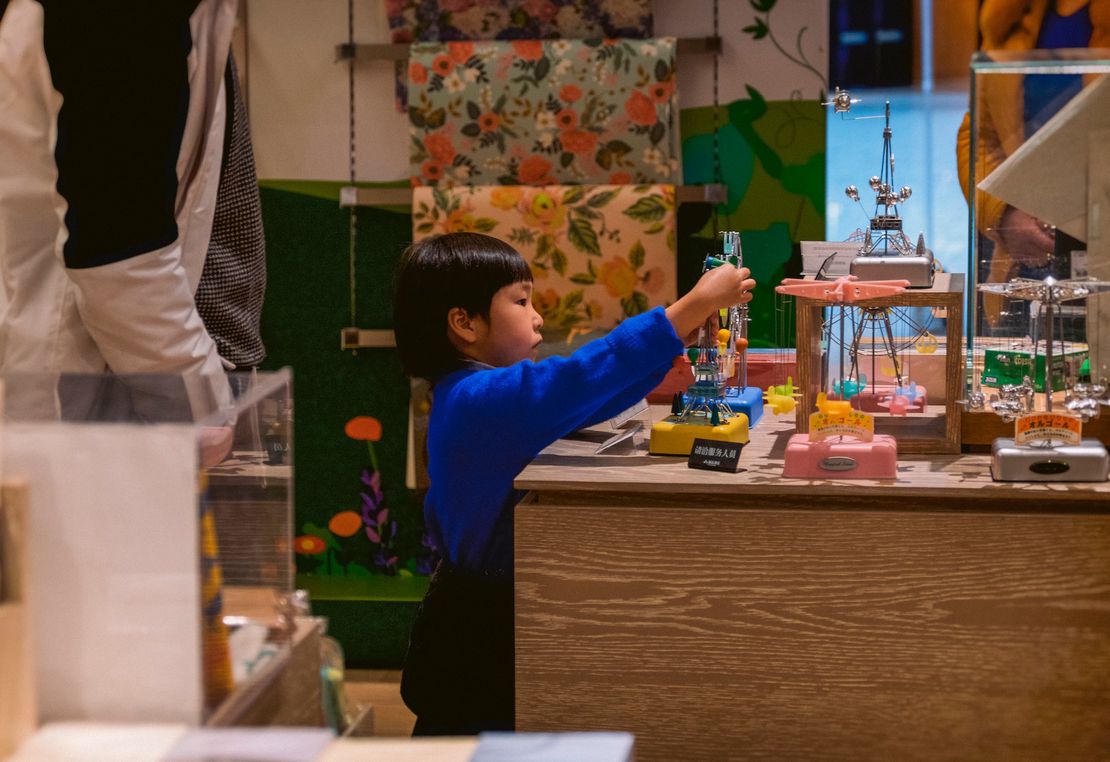
Navigating the Journey Together
- Tzvi Mogilevsky
- Relationships
- January 9, 2024
In the intricate dance of parenting, we often focus intently on our children’s needs, especially when they face challenges. However, in the midst of guiding and supporting our children, parents themselves may overlook their own need for support. This blog post explores the often under-discussed aspect of parenting - the necessity for parents to receive support as they navigate through their child’s difficulties. From gaining additional perspectives to developing advanced interpersonal skills, this journey is not just about the child; it’s equally about the parent’s growth and well-being.
One thing I noticed with my own kids is that as much experience as we can have, challenges always involve reduction in clarity of thinking. It feels different than looking at the situation from the outside. I am very lucky to have an exceptional spouse, who’s a children educator, very practical, and balanced. I don’t know where I would be without her support. Both parents often don’t have the same perspective on the matter, but we learned to sing the same song, so it is consistent across the board for our children.
Enough about me, let’s read on. This article is packed with practical tips, expert opinions, and perspectives.
The Power of an Outside Perspective
Sometimes, being deeply involved in our child’s life can obscure our view. An external perspective offers fresh insights and objectivity that we, as parents, might miss. This section delves into why having another “pair of eyes” can be invaluable.
This might involve consulting with educators, therapists, life coaches, or fellow parents who can provide different viewpoints or share similar experiences. It’s not about questioning your parenting, but about enriching it with diverse perspectives.
When we open ourselves to external advice, we’re not only gaining new ideas but also learning to balance our emotional involvement with rational decision-making. This balance is crucial for effective parenting, especially in challenging times, because the blind spots are exactly where they are - in our blind spots.
Understanding the Dynamics of Personalities
Every child is unique, just like every parent. Personality isn’t inheritance, and so is every parent-child relationship is compoundly unique, based on the people in it. It is important to understand these unique dynamics for effective support and communication.
We’ll explore how recognizing and respecting individual personalities within the family can prevent misunderstandings and conflicts, and how to adapt your parenting style to your child’s unique needs and disposition.
Let’s illustrate how nuanced understanding of personality dynamics can lead to more harmonious relationships and better support for your child during challenging times with some examples. I think any parent can relate to at least some of these situations and learn from them. They highlight the complexities of family dynamics and underscore practical solutions for fostering more harmonious relationships, especially in times of challenge.
The Introverted Child and Extroverted Parent
Scenario: a family where the child is introverted, often quiet and reflective, while the parent is extroverted, thriving on social interactions and verbal communication.
Insight: A child psychologist might highlight the potential for miscommunication and frustration in such dynamics. The parent might misinterpret the child’s need for solitude as aloofness or unhappiness.
Resolution: Through understanding and adapting their approaches, the parent learned to give the child space to open up in their own time, while the child learned to communicate their need for quiet moments. This balance fostered a stronger, more understanding relationship.
Navigating a High-Energy Child’s Challenges
Scenario: a highly energetic and impulsive child, presenting unique challenges in focus and discipline, which the parent initially struggled to manage.
Insight: A behavioural therapist provides insight into managing such dynamics, emphasizing the importance of structured activities and consistent routines for high-energy children. Most importantly, the professional can guide the parents with regards to the “how” exactly to implement this.
Outcome: By implementing these strategies and understanding the child’s inherent needs, the parent was able to create a more harmonious home environment, where the child felt understood and their energy was channeled positively.
Expert Opinion on Family Dynamics
Family therapists often stress the importance of recognizing each family member’s personality traits and communication styles. They suggest regular family meetings as a platform for each member to express themselves and feel heard, fostering a deeper mutual understanding.
This approach helps in preemptively addressing potential conflicts and misunderstandings, creating a family dynamic that is respectful of individual differences while promoting collective well-being.
What’s more, you can adjust each personality type behaviours to match the expectations of the other people in ways that are beneficial to everyone involved, instead of the natural tactics such as avoidance, pleasing and the likes.
The Art of Active Listening
Active listening is a crucial skill for parents, especially when children face difficulties. This section focuses on how active listening can transform your interactions with your child.
Active listening involves fully concentrating, understanding, responding, and then remembering what is being said. Here, we provide practical tips and exercises to enhance your active listening skills.
Active listening makes a significant difference in a child’s experience, with impact on emotional support and problem-solving.
Practical Tips for Active Empathetic Listening
Active listening is not just about hearing the words; it’s about understanding the emotions and thoughts behind them. This skill is crucial for providing effective emotional support and aiding in problem-solving during challenging times. It requires effort and practice but has a profound impact on the quality of the parent-child relationship.
Empathy is the heart of understanding and supporting your child. Its role in parenting, especially during challenging times, goes beyond mere understanding; it involves sharing and acknowledging your child’s feelings.
Give Your Full Attention:
- Exercise: Practice mindful listening. When your child is speaking, focus solely on their words. Turn off any distractions like your phone. Make a conscious effort to be present in the moment, physically and mentally.
Show That You’re Listening:
- Tip: Use non-verbal cues like nodding, eye contact, and leaning forward to show engagement.
- Exercise: After your child finishes a sentence, repeat back a summary of what they said, like, “So, you’re feeling upset because…”
Avoid Interrupting:
- Tip: Let your child finish their thoughts without jumping in with solutions or judgments.
- Exercise: Challenge yourself to wait for 5 seconds after your child finishes speaking before you respond.
Reflect and Clarify:
- Tip: Ask clarifying questions to ensure you’ve understood their perspective. Use phrases like, “What I’m hearing is… Is that right?”
- Exercise: After a conversation, write down the key points you gathered from your child’s communication to see how accurately you’ve understood them.
Respond with Empathy:
- Tip: Acknowledge their feelings. Say things like, “It sounds like you’re really frustrated with this situation.”
- Exercise: In a conversation, try to identify and name the emotions your child might be feeling, even if they haven’t explicitly expressed them.
Encourage Further Sharing:
- Tip: Use open-ended questions like, “How did that make you feel?” or “What would you like to do next?”
- Exercise: During conversations, think of questions that require more than a yes/no answer to encourage deeper discussion.
Remember and Follow Up:
- Tip: Show that you remember past conversations by referring back to them. This demonstrates that you value their thoughts and feelings.
- Exercise: Keep a mental or written note of significant points from your conversations and bring them up in future discussions to show continuity and care.
Advanced Skills for Complex Challenges
Sometimes, parents face complex challenges that require advanced skills, those that go beyond the basics of parenting. Skills like conflict resolution, managing stress, and effective communication strategies in particular situations are crucial. High stakes emotional situations call for air support, so don’t go at it alone. Developing these skills is best when you have an expert by your side, reach out to your friendly life coach!
In Conclusion
Parenting is a journey filled with both joys and challenges. As we guide our children through their struggles, it’s vital that we, as parents, also seek and receive support. This not only aids in our personal growth but also equips us to be the pillar of strength our children need. Remember, in helping ourselves, we are better positioned to help our children. Let’s embrace the journey together, supporting each other every step of the way.


